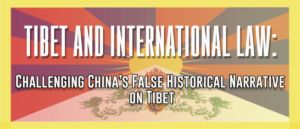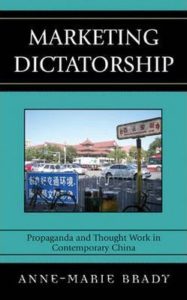 Supposing that the world order can be placed somewhere in the spectrum between constitutionalized and authoritarian, China’s narrative power-play during the Covid outbreak might have moved the post-pandemic order closer to the authoritarian end, according to a new analysis. This position is not permanent, however, but subject to rectification and adjustment by any changes in the international systemic structure as well as behaviors by international actors. In short, the world today is too complex to settle into one single hegemonic order, Yung-Yung Chang writes in Post-Pandemic World: between Constitutionalized and Authoritarian Orders – China’s Narrative-Power Play, an article in the Journal of Chinese Political Science.
Supposing that the world order can be placed somewhere in the spectrum between constitutionalized and authoritarian, China’s narrative power-play during the Covid outbreak might have moved the post-pandemic order closer to the authoritarian end, according to a new analysis. This position is not permanent, however, but subject to rectification and adjustment by any changes in the international systemic structure as well as behaviors by international actors. In short, the world today is too complex to settle into one single hegemonic order, Yung-Yung Chang writes in Post-Pandemic World: between Constitutionalized and Authoritarian Orders – China’s Narrative-Power Play, an article in the Journal of Chinese Political Science.
China’s narrative power has been exercised from three perspectives (formation, projection and reception), Chang contends:
- Formation: China has formulated the narratives to shape its positive national image in the international realm. It would be a transformative process to change China’s status/identity amid this pandemic from a ‘victim/survivor’ of the pandemic, to a ‘fighter’ fighting against the pandemic in a very effective way, and then finally to a ‘contributor’ to international society.
- Projection of the narrative seeks to make a conspicuous differentiation between China and the hegemony of the West, in particular the US, advocating China’s way of encouraging cooperation and providing an alternative means of global governance. Accordingly, China can be perceived not only as an alternative provider, but also as a responsible and more reliable partner.
- Reception: International affairs may possess narrativity, but the story is not complete without the interpretation of the audience. Thus, whether a narrator’s strategic goal can be achieved depends on the reception and perception of their narrative. It is this reception by others that matters when contemplating China’s narrative power in terms of encouraging the emergence of the authoritarian sub-order.
 China is pursuing a multipronged strategy toward global governance. It supports international institutions and agreements aligned with its goals and norms, such as the World Bank and the Paris Agreement on climate change. Yet, on issues in which Beijing diverges from the norms of the current system, such as human rights, it seeks to undermine those values and create alternative institutions and models, says the Council on Foreign Relations:
China is pursuing a multipronged strategy toward global governance. It supports international institutions and agreements aligned with its goals and norms, such as the World Bank and the Paris Agreement on climate change. Yet, on issues in which Beijing diverges from the norms of the current system, such as human rights, it seeks to undermine those values and create alternative institutions and models, says the Council on Foreign Relations:
In areas where norms and institutions are still being established, such as internet governance, China works with other authoritarian powers such as Russia to create standards that reflect their interests. China has become a powerful force in global governance.
Increasingly, its efforts appear to be deepening divides with other countries, particularly democracies that are committed to existing norms and institutions. Ultimately, this divide could make it harder for states to collaboratively address major international challenges. The divide could even create two distinct systems of global governance, badly undermining multilateral cooperation.
 In fact, Xi Jinping and the ruling party are doing what the United States and other great powers have often done by shaping their international environment to favor the survival of their own domestic regime, adds John Owen, a professor of politics at the University of Virginia and a senior fellow at the Democratic Statecraft Lab of the Democracy Initiative. United States administrations tended to use authority to bias the international system toward democracy. The ruling party of China is trying to build a bias for autocracy into the same international system, he writes for The Hill:
In fact, Xi Jinping and the ruling party are doing what the United States and other great powers have often done by shaping their international environment to favor the survival of their own domestic regime, adds John Owen, a professor of politics at the University of Virginia and a senior fellow at the Democratic Statecraft Lab of the Democracy Initiative. United States administrations tended to use authority to bias the international system toward democracy. The ruling party of China is trying to build a bias for autocracy into the same international system, he writes for The Hill:
Xi knows the United States and other democracies believe that the liberal world order will erode autocracy in China as it did in the Soviet Union. So it should surprise no one that the ruling party is now trying to reshape the international environment to select for autocracy. For the United Nations, China is pushing to alter human rights rules to stress “rights to develop” over individual rights against the government. It is also trying to change critical internet rules to allow for “cyber sovereignty.”
After over a century of weakness, a more powerful China has emerged in the past two decades. Now China wants to create its own global rules. https://t.co/1OWIK1m0bE via @cfr_org
— Democracy Digest (@demdigest) October 12, 2020
 A letter organized in support of Professor Anne-Marie Brady of New Zealand’s University of Canterbury has attracted signatures from more than 120 international experts on China-related matters. The initiative follows adverse reaction to her report on China’s influence operations to the New Zealand Parliament’s Justice Select Committee in July 2020: “Holding a Pen in One Hand, Gripping a Gun in the Other.”
A letter organized in support of Professor Anne-Marie Brady of New Zealand’s University of Canterbury has attracted signatures from more than 120 international experts on China-related matters. The initiative follows adverse reaction to her report on China’s influence operations to the New Zealand Parliament’s Justice Select Committee in July 2020: “Holding a Pen in One Hand, Gripping a Gun in the Other.”
Brady, a prominent researcher on China’s efforts to influence Western democracies, drew ire from her colleagues in July when she presented a paper as a supplementary submission to Parliament’s justice select committee, Stuff.NZ reports:
The paper, which Brady co-authored, discussed how Chinese companies and universities may be exploiting relationships with New Zealand counterparts to transfer technology useful to the Chinese military. Several academics from UC and other New Zealand universities complained about assertions in the paper. UC deputy vice-chancellor Ian Wright said the complainants cited “manifest errors of fact and misleading inferences”.
Brady “has been the target of a harassment campaign and threatening menace because of the serious implications of her important research,” states the open letter, whose signatories include several associates of the National Endowment for Democracy, (NED), the Washington-based democracy assistance group:
- Aaron L. Friedberg, Professor of Politics and International Affairs, Princeton University, USA
- Adrian Zenz, Senior Fellow in China Studies, Victims of Communism Memorial Foundation, USA
- Aki Tonami, Associate Professor, University of Tsukuba, Japan
- Alexander Maxwell, Senior Lecturer in History, Victoria University of Wellington New Zealand
- Amanda Black, Associate Professor, Lincoln University, NZ
- Anders Corr, Principal, Corr Analytics, USA
- Andre Laliberté, Professor, University of Ottawa, Canada
- Andréa Worden, Non-resident research fellow, Sinopsis, U.S.
- Andreas Fulda, Associate Professor, University of Nottingham, UK
- Andrew Nathan, Professor, Columbia University, USA
- Anita Chan, Visiting retired professor, Australian National University, Australia
- Anna Zádrapová, Analyst at Red Watch Program, European Values Centre for Security Policy, CZ
- Arthur Waldron, Lauder Professor of International Relations, University of Pennsylvania
- Barbara Hartley, Independent Researcher, Australia
- Barrett L. McCormick, Marquette University, USA
- Benedict Rogers, Chief executive And Founder of Hong Kong Watch and Deputy Chair UK Conservative Party Human Rights Commission, UK
- Bradley Thayer, Professor, University of Texas San Antonio, USA
- Casper Wits, University Lecturer East Asia Studies, Leiden University, The Netherlands
- Catherine Churchman, Lecturer, Victoria University of Wellington, NZ
- Clive Hamilton, Professor of Public Ethics, Charles Sturt University, Canberra, Australia
- Consiglio Di Nino, former Senate of Canada senator, CA
- Daisy Lee, Correspondent, Epoch Times, NZ and HK
- David Schak, Nathan campus, Griffith University, AU
- Dean Baxendale, President and Publisher of Optimum Publishing International, CA
- Demetrius Cox, Lieutenant Commander, US Navy (Retired), USA
- Didi Kirsten Tatlow, Senior Fellow at Asia Program at DGAP, Senior Fellow at Sinopsis, DE
- Ding Qiang, NZ Values Alliance, NZ
- Donald Clarke, Professor, George Washington University, USA
- Dong Luobin, NZ Values Alliance, NZ
- Dorothy J. Solinger, Professor, Emerita, UC Irvine, USA
- Edward Friedman, Emeritus Professor, University of Wisconsin, USA
- Edward Lucas, Senior Vice President, Center for European Policy Analaysis, UK
- Elizabeth Economy, Senior fellow at the Hoover Institution at Stanford University and Senior fellow for China studies at the Council on Foreign Relations, USA
- Eske Møllgaard, Department of Philosophy, University of Rhode Island, USA
- Feng Chongyi, Associate Professor. University of Technology Sydney, Australia
- Freeman Yu, Secretary General, NZ Values Alliance, NZ
- Gary Chisholm, NZ
- Geremie R. Barmé, Professor Emeritus, Australian National University, Australia
- Gerrit van der Wees, Adjunct Faculty, George Washington University, Elliott School of International Affairs, United States
- Gerry Groot, Senior Lecturer in Chinese Studies, Department of Asian Studies, School of Social Sciences, University of Adelaide, Australia
- Gill H. Boehringer, Hon. Senior Research Fellow, Macquarie University Law School, Sydney, Australia
- Greg Newbold, Professor Emeritus, University of Canterbury, New Zealand
- Gregor Benton, Emeritus Professor, Cardiff University, Wales, UK
- Harlan W. Jencks, University of California/Lawrence Livermore National Laboratory (Retired), USA
- Harold Bockman, Emeritus Professor, University of Oslo, Norway
- Charles Burton, Senior Fellow at Macdonald-Laurier Institute & European Values Center for Security Policy, CA
- Charles Parton, Senior Associate Fellow, Royal United Services Institute, UK
- Chen Weijian, Editor and Correspondent, Beijing Spring, NZ
- Clare Curran, MP for Dunedin South, NZ
- Christopher Balding, Independent Scholar, USA
- Christopher R Hughes, Professor, London School of Economics, UK
- Christopher Walker, Vice President for Studies and Analysis, National Endowment for Democracy, USA
- J. Michael Cole, Senior Fellow, Macdonald-Laurier Institute & Senior Fellow, Global Taiwan Institute, CA
- James D. Seymour, Chinese University of Hong Kong
- James Leibold, Associate Professor and Head of Department, La Trobe University, Australia
- Jamil Anderlini, Asia Editor, Financial Times, Hong Kong
- Jane Verbitsky, Associate Professor, AUT, New Zealand
- Jenny Chan, Assistant Professor of Sociology, The Hong Kong Polytechnic University, Hong Kong
- Jeremy Goldkorn, Editor, USA
- Jerome A. Cohen, Faculty Director Emeritus, US-Asia Law Institute, NYU Law School, USA
- Jiang Chaoyang, NZ Values Alliance, NZ
- Joanne Smith Finley, Reader in Chinese Studies, Newcastle University, UK
- Joey Siu, External Vice President, City University of Hong Kong Students Union, Hong Kong
- John Dotson, Editor, China Brief, Jamestown Foundation, USA
- John Fitzgerald, Swinburne University of Technology, Australia
- John Hemmings, Associate Professor, Daniel K. Inouye Asia-Pacific Center for Security Studies, USA
- John Minford, Emeritus Professor, Australian National University, Australia
- Jonathan Hassid, Iowa State University, USA
- Jonathan Mirsky, former editor, Times of London, UK
- Joseph Bosco, Former China Country Director, Office of the Secretary of Defense, USA
- Josephine Chiu-Duke, Professor, University of British Columbia, CA
- Julian Snelder, Director, Amiya Capital, NZ
- June Teufel Dreyer, Professor, University of Miami, USA
- Karin Kinzelbach, Professor, FAU Erlangen-Nürnberg, Germany
- Katerina Procházková, Sinopsis, CZ
- Kerry Gershaneck, Professor, National Chengchi University, Taiwan
- Kevin Carrico, Senior Lecturer, Monash University, Australia
- Kevin McCready, Translator, former Australian Government Economist, New Zealand
- Kimberley Kitching, Senator for Victoria, Australian Senate, Australia
- Kingsley Edney, Lecturer in Politics and International Relations of China, University of Leeds, United Kingdom
- Larry Diamond, Senior Fellow, Hoover Institution, USA
- Lesley Seebeck, CEO Cyber Institute, ANU, Australia
- Louisa Greve, Director of Global Advocacy, Uyghur Human Rights Project, United States
- Louisa Wall, MP, NZ Parliament, NZ
- Lukáš Zádrapa, Head of Department of Sinology, Charles University, Czech Republic
- Luke de Pulford, Coordinator of Inter-Parliamentary Alliance on China, UK
- Magnus Fiskesjö, Associate Professor of Anthropology, Cornell University, USA
- Mareike Ohlberg, Senior Fellow, German Marshall Fund, DE
- Margaret McCuaig-Johnston, Senior Fellow, China Institute, University of Alberta, CA
- Mark Selden, Senior Research Associate, East Asia Program, Cornell University, Managing Editor, The Asia-Pacific Journal, USA
- Martin Flaherty, Visiting Professor, School of Public and International Affairs, Princeton University
- Martin Hála, Director, Sinopsis, CZ
- Mary Farquhar, Professor Emeritus, Griffith University, Australia
- Michael Barr, FAHA; Associate Professor in International Relations (Academic Status), Flinders University, Australia
- Michael Dillon, China specialist, Formerly Director, Centre for Contemporary Chinese Studies, University of Durham
- Michael Yahuda, Professor Emeritus of the London School of Economics and Political Science, currently Visiting Scholar the George Washington University, Washington DC, USA
- Michelle Mood, Assistant Professor, Kenyon College, USA
- Nicky Hager, Independent Journalist and Author, NZ
- Olga Lomova, Director of the Chiang Ching-kuo Foundation International Sinological Center at Charles University, Prague
- Ond?ej Klimeš, Czech Academy of Sciences, CZ
- Peter Dahlin, Director, Safeguard Defenders, Spain/China
- Peter Hartcher, Political and International Editor, The Sydney Morning Herald, Australia
- Peter Humphrey, External Research Affiliate, Harvard University Fairbank Center, United States. External Research Affiliate, King’s College London, Lau Institute, United Kingdom
- Richard Kraemer, Board President, US-Europe Alliance, USA
- Richard Louis Edmonds, Former editor, The China Quarterly, FR
- Robert Horvath, Senior Lecturer, La Trobe University, Australia
- Robert Porter, Cyber-Security Fellow, CRS, Tama University, Japan
- Roger Garside, Former British diplomat, United Kingdom
- Ruan Ji, Lecturer, AUT, NZ
- Sam Armstrong, Director of Communications, Henry Jackson Society, UK
- Sandrine Emmanuelle Catris, Assistant Professor of History, Augusta University, United States
- Shaun O’Dwyer, Associate Professor, Faculty of Languages and Cultures, Kyushu University, Japan
- Shelley Rigger, Brown Professor of Political Science, Davidson College
- Simon Chapple, Director, Institute for Governance and Policy Studies, Victoria University of Wellington, NZ
- Stephanie Hemelryk Donald, Professor, Lincoln University, UK
- Stephen Blank, Senior Fellow. Foreign Policy Research Institute
- Steven I. Levine, Faculty Research Associate, University of Montana, USA
- Steven W. Mosher, President, Population Research Institute, USA
- Stuart Russell, Professor, Macquarie University School of Law, Australia (retired)
- Teng Biao, Grove Human Rights Scholar, Hunter College, USA
- Terence Russell, Senior Scholar, University of Manitoba, Canada
- Thierry Kellner, Professor, Université libre de Bruxelles, Belgium
- Thomas G. Mahnken, Senior Research Professor, Johns Hopkins School of Advanced International Studies, USA
- Thomas Chase, Lecturer, Monash University, Australia
- Toby Dalley, Independent Scholar, NZ
- Tom Grunfeld, Emeritus Distinguished Teaching Professor, SUNY, USA
- Tom Sear, Industry Fellow, University of New South Wales, Australia
- Valerie Niquet, Senior Research Fellow, Fondation pour le RéchercheStratégique, France
- Vanessa Frangville, Professor, Université libre de Bruxelles, Belgium
- Victor H. Mair, Professor, Chinese Language and Literature, University of Pennsylvania School of Arts & Sciences
- Victoria Tin-bor Hui, Associate Professor, University of Notre Dame, USA
- William A. Callahan, London School of Economics, UK
- Yaxue Cao, Founder and Editor, China Change, United States







